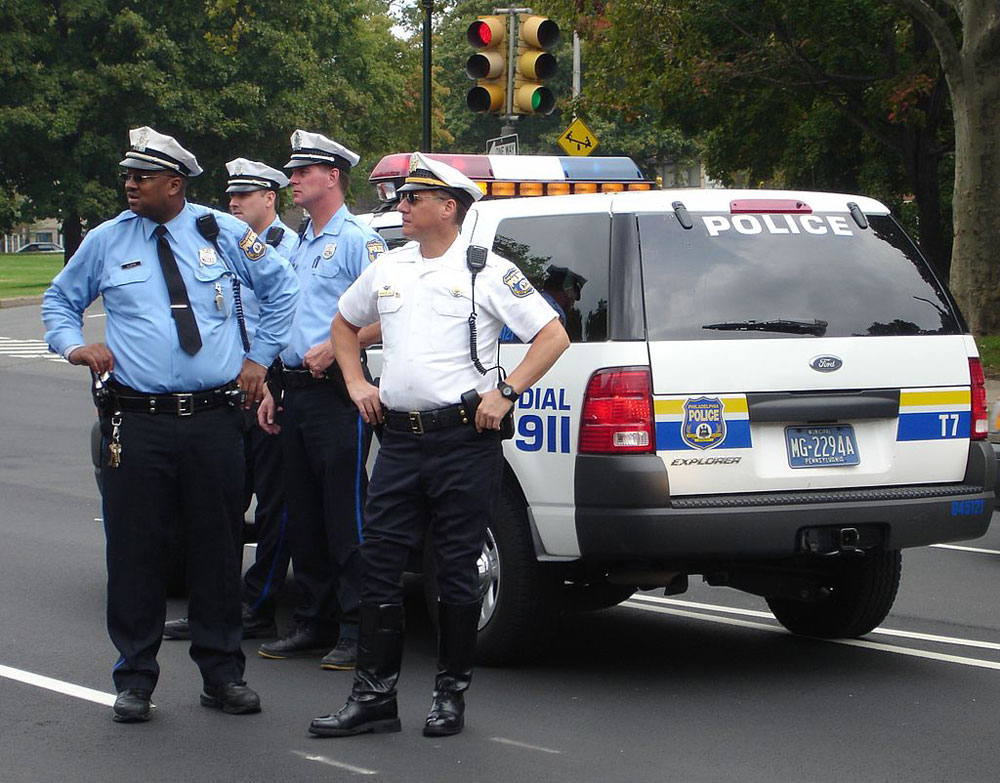
July 19, 2020; Philadelphia Inquirer
In cities across the nation, protesters have continued to march to press their demands that police departments be radically reformed and defunded. The Action Network made those demands specific when they put their agenda before Philadelphia’s City Council:
The programs that reduce violence in our neighborhoods are libraries, they are rec centers, they are the interlocking networks of care and support that are funded through our tax dollars and are animated independently by our communities. We demand in this moment that we defund the police to make up for the shortfall of what truly keeps us safe. WE KEEP US SAFE!
Last month, Ruth McCambridge, writing in NPQ, citing research done by the Guardian and the nonprofit Public Accountability Initiative watchdog group, identified foundations formed to support the police as part of the problem both locally and nationally. These foundations, able to receive tax-deductible donations from individuals and corporations, serve “a variety of purposes meant to ‘supplement’ discretionary police spending without the need to go through a public review process…they purchase such extras as surveillance technology and weaponry that’s not funded, approved, or monitored by the public.”
Across the country, we have seen the focus on these foundations and other police-centered entities, like unions and lobbying organizations, grow. In Chicago this week, the president of the local chapter of the Fraternal Order of Police encouraged President Trump to send federal agents to their community, in contravention of the position of elected officials. In Portland, it was during a protest at the police association building that the federal agents deployed by Trump showed up in that city uninvited. In fact, though not widely reported in this country, the National Association of Police Organizations endorsed Trump last week in a press conference with the president for the 2020 national elections.
Protesters in Philadelphia have begun to pressure supporters of the Philadelphia Police Foundation. Currently, the PPF plays a small but significant role in augmenting that city’s $780 million police budget. Described by the Philadelphia Inquirer, the Foundation “fills crucial funding gaps in the city budget,” paying for equipment and initiatives ranging from anti-bias training to 50,000 KN95 masks during the early days of the coronavirus pandemic.” It also “replaced antiquated rifles used by the SWAT team in high-stakes situations.”
Sign up for our free newsletters
Subscribe to NPQ's newsletters to have our top stories delivered directly to your inbox.
By signing up, you agree to our privacy policy and terms of use, and to receive messages from NPQ and our partners.
To close this back door, protesters have set their sights on PPF donors and demanded they withdraw support and redirect funds toward community-based services. The Foundation has tried to protect its donors from this pressure, removing any mention of them from their website and not listing any major donors in their tax filings. Quoting a statement from that site:
Recently our board members, staff and donors were targeted, threatened and harassed online by groups and individuals during the ongoing unrest in the City. Thus, as a precaution for their safety, we made an internal decision last month to streamline the information on our website.
Corporate donors have tried to stress that their continued support of the Foundation was meant as part of the solution and that they did not fund weaponry. A spokesperson for Independence Blue Cross, which has made donations as large as $100,000 to the Foundation, told the Inquirer, “We understand the concerns regarding our support for Philadelphia Police Foundation at a time when there is a public outcry for police reform. Independence looks forward to supporting foundation initiatives that focus on diversity, inclusion, and reforms that ensure fair, compassionate and equitable policing for all citizens regardless of race or other differences.”
Temple University and UPenn, under pressure from students, have withdrawn their support. Temple’s President Richard M. Englert said last week, “Upon review and community input, we have decided that the university will no longer provide this support. Instead, Temple will reallocate these funds to support social justice programs at the university.”
As pressure mounts on city governments and police departments to change, we will need to watch foundations and the role they choose to play. This arm of the philanthropic community cannot be the way the police hold back progress. Donors ought to be accountable for the choices they make, and those who sit on their boards must be held to act in the public interest.—Martin Levine













